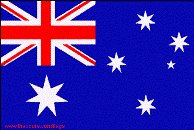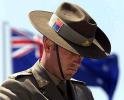

A brief history of ANZAC day and the beginning of a tradition in Australia and New Zealand. ANZAC means Australian New Zealand Army Corps this day the twenty fifth of April is remembered annually in both countries.
This landing which turned out to be a defeat happened in WW1 with the landing of Australian and New Zealand soldiers onto Anzac cove on the Gallipoli Peninsula,
The loss of life on both the Anzac’s and

The Turkish Army was horrendous; the bravery on both sides was magnificent and the Turks were held in high esteem by the Anzac’s and indeed are still thought of highly even to this day; in fact we have many Turkish Migrants here in the cities or did have, strangely enough they got into our way of life.

Called Lone pine; Today it is a monument to both sides and the day is celebrated there with a friendly soccer match etc; its amazing the number of Aussie’s and Kiwis who make the trip as it costs around A$8000. Return fare.
Lone Pine was a place of terrible carnage all those years ago, and it was only a diversionary attack, one of many in fact.

Ten Victoria Crosses were awarded during the Gallipoli Campaign, seven alone were awarded at Anzac cove, five in the one day alone; the Victoria Cross is our highest military award and simply has the words on it for valour; we now have our own awards but our military who deserve such an honour still get the Victoria cross.
The young men of Gallipoli were the first ANZACs, ordinary young Australians doing their best in a campaign of intense ferocity. Their casualties, here horrendous, nearly 8,000 Australians were killed, and 78,000 wounded, and to what end?
ANZAC INGENUITY--THE PERISCOPE RIFLE
The Australian soldier had, even during the earlier Anglo-Boer War, earned a reputation for ingenuity and improvisation. One example of this at Gallipoli was the invention in May 1915 of the
periscope rifle by Lance Corporal Beech of Sydney. Mirrors allowed the user to sight the rifle while completely invisible to the enemy. The rifle was accurate up to 300 metres (sometimes the opposing trenches were only metres apart). The idea was quickly adopted by the Turks.
The campaign was a failure, and yet of all the battlefields on which Australians have died, it is the disastrous Gallipoli campaign that has come to symbolise the Australian soldier's courage, determination, fighting prowess, humour and mateship. The essence of
Gallipoli was that in the face of adversity and potential defeat, the Australian spirit triumphed.
The Australian Imperial Force, first raised in 1914 for overseas war service, became better known by its initials – the “AIF”. It was a separate and purely volunteer army, and to join they all marched from country towns from all over rural Australia picking up more volunteers on their way to points of enlistment at Sydney , Melbourne etc.
There was a distinct character to those who enlisted in the earliest months and who were destined to fight on Gallipoli. They were keen; they had to meet tougher physical standards than those later applied; and quite a few had previous experience in British or Australian forces. Each of them would need to be lucky to survive the next four years of war.
Eventually 330,000 Australians served overseas. During the war the AIF took its place among the great armies of the world, on some of history’s oldest battlefields. The Australians would attack at the Dardanelles, enter Jerusalem and Damascus, defend Amiens and Ypres, and swagger through the streets of Cairo, Paris, and London, with their distinctive slouch hats and comparative wealth of six shillings per day.
During the Second World War, when Australia again raised a volunteer force, they called it the “second AIF”
Our modern military is now recognised as a formidable fighting force and the spirit of ANZAC is amongst them all wherever they have fought since.
They shall grow not old as we that are left grow old,
Age shall not weary them nor the years condemn,
At the going down of the sun and in the morning,
We shall remember them lest we forget.



 A brief history of ANZAC day and the beginning of a tradition in Australia and New Zealand. ANZAC means Australian New Zealand Army Corps this day the twenty fifth of April is remembered annually in both countries.
This landing which turned out to be a defeat happened in WW1 with the landing of Australian and New Zealand soldiers onto Anzac cove on the Gallipoli Peninsula,
The loss of life on both the Anzac’s and
A brief history of ANZAC day and the beginning of a tradition in Australia and New Zealand. ANZAC means Australian New Zealand Army Corps this day the twenty fifth of April is remembered annually in both countries.
This landing which turned out to be a defeat happened in WW1 with the landing of Australian and New Zealand soldiers onto Anzac cove on the Gallipoli Peninsula,
The loss of life on both the Anzac’s and  The Turkish Army was horrendous; the bravery on both sides was magnificent and the Turks were held in high esteem by the Anzac’s and indeed are still thought of highly even to this day; in fact we have many Turkish Migrants here in the cities or did have, strangely enough they got into our way of life.
The Turkish Army was horrendous; the bravery on both sides was magnificent and the Turks were held in high esteem by the Anzac’s and indeed are still thought of highly even to this day; in fact we have many Turkish Migrants here in the cities or did have, strangely enough they got into our way of life.
 Called Lone pine; Today it is a monument to both sides and the day is celebrated there with a friendly soccer match etc; its amazing the number of Aussie’s and Kiwis who make the trip as it costs around A$8000. Return fare.
Lone Pine was a place of terrible carnage all those years ago, and it was only a diversionary attack, one of many in fact.
Called Lone pine; Today it is a monument to both sides and the day is celebrated there with a friendly soccer match etc; its amazing the number of Aussie’s and Kiwis who make the trip as it costs around A$8000. Return fare.
Lone Pine was a place of terrible carnage all those years ago, and it was only a diversionary attack, one of many in fact.
 Ten Victoria Crosses were awarded during the Gallipoli Campaign, seven alone were awarded at Anzac cove, five in the one day alone; the Victoria Cross is our highest military award and simply has the words on it for valour; we now have our own awards but our military who deserve such an honour still get the Victoria cross.
The young men of Gallipoli were the first ANZACs, ordinary young Australians doing their best in a campaign of intense ferocity. Their casualties, here horrendous, nearly 8,000 Australians were killed, and 78,000 wounded, and to what end?
ANZAC INGENUITY--THE PERISCOPE RIFLE
The Australian soldier had, even during the earlier Anglo-Boer War, earned a reputation for ingenuity and improvisation. One example of this at Gallipoli was the invention in May 1915 of the periscope rifle by Lance Corporal Beech of Sydney. Mirrors allowed the user to sight the rifle while completely invisible to the enemy. The rifle was accurate up to 300 metres (sometimes the opposing trenches were only metres apart). The idea was quickly adopted by the Turks.
The campaign was a failure, and yet of all the battlefields on which Australians have died, it is the disastrous Gallipoli campaign that has come to symbolise the Australian soldier's courage, determination, fighting prowess, humour and mateship. The essence of Gallipoli was that in the face of adversity and potential defeat, the Australian spirit triumphed.
The Australian Imperial Force, first raised in 1914 for overseas war service, became better known by its initials – the “AIF”. It was a separate and purely volunteer army, and to join they all marched from country towns from all over rural Australia picking up more volunteers on their way to points of enlistment at Sydney , Melbourne etc.
There was a distinct character to those who enlisted in the earliest months and who were destined to fight on Gallipoli. They were keen; they had to meet tougher physical standards than those later applied; and quite a few had previous experience in British or Australian forces. Each of them would need to be lucky to survive the next four years of war.
Eventually 330,000 Australians served overseas. During the war the AIF took its place among the great armies of the world, on some of history’s oldest battlefields. The Australians would attack at the Dardanelles, enter Jerusalem and Damascus, defend Amiens and Ypres, and swagger through the streets of Cairo, Paris, and London, with their distinctive slouch hats and comparative wealth of six shillings per day.
During the Second World War, when Australia again raised a volunteer force, they called it the “second AIF”
Our modern military is now recognised as a formidable fighting force and the spirit of ANZAC is amongst them all wherever they have fought since.
They shall grow not old as we that are left grow old,
Age shall not weary them nor the years condemn,
At the going down of the sun and in the morning,
We shall remember them lest we forget.
Ten Victoria Crosses were awarded during the Gallipoli Campaign, seven alone were awarded at Anzac cove, five in the one day alone; the Victoria Cross is our highest military award and simply has the words on it for valour; we now have our own awards but our military who deserve such an honour still get the Victoria cross.
The young men of Gallipoli were the first ANZACs, ordinary young Australians doing their best in a campaign of intense ferocity. Their casualties, here horrendous, nearly 8,000 Australians were killed, and 78,000 wounded, and to what end?
ANZAC INGENUITY--THE PERISCOPE RIFLE
The Australian soldier had, even during the earlier Anglo-Boer War, earned a reputation for ingenuity and improvisation. One example of this at Gallipoli was the invention in May 1915 of the periscope rifle by Lance Corporal Beech of Sydney. Mirrors allowed the user to sight the rifle while completely invisible to the enemy. The rifle was accurate up to 300 metres (sometimes the opposing trenches were only metres apart). The idea was quickly adopted by the Turks.
The campaign was a failure, and yet of all the battlefields on which Australians have died, it is the disastrous Gallipoli campaign that has come to symbolise the Australian soldier's courage, determination, fighting prowess, humour and mateship. The essence of Gallipoli was that in the face of adversity and potential defeat, the Australian spirit triumphed.
The Australian Imperial Force, first raised in 1914 for overseas war service, became better known by its initials – the “AIF”. It was a separate and purely volunteer army, and to join they all marched from country towns from all over rural Australia picking up more volunteers on their way to points of enlistment at Sydney , Melbourne etc.
There was a distinct character to those who enlisted in the earliest months and who were destined to fight on Gallipoli. They were keen; they had to meet tougher physical standards than those later applied; and quite a few had previous experience in British or Australian forces. Each of them would need to be lucky to survive the next four years of war.
Eventually 330,000 Australians served overseas. During the war the AIF took its place among the great armies of the world, on some of history’s oldest battlefields. The Australians would attack at the Dardanelles, enter Jerusalem and Damascus, defend Amiens and Ypres, and swagger through the streets of Cairo, Paris, and London, with their distinctive slouch hats and comparative wealth of six shillings per day.
During the Second World War, when Australia again raised a volunteer force, they called it the “second AIF”
Our modern military is now recognised as a formidable fighting force and the spirit of ANZAC is amongst them all wherever they have fought since.
They shall grow not old as we that are left grow old,
Age shall not weary them nor the years condemn,
At the going down of the sun and in the morning,
We shall remember them lest we forget.













No comments:
Post a Comment